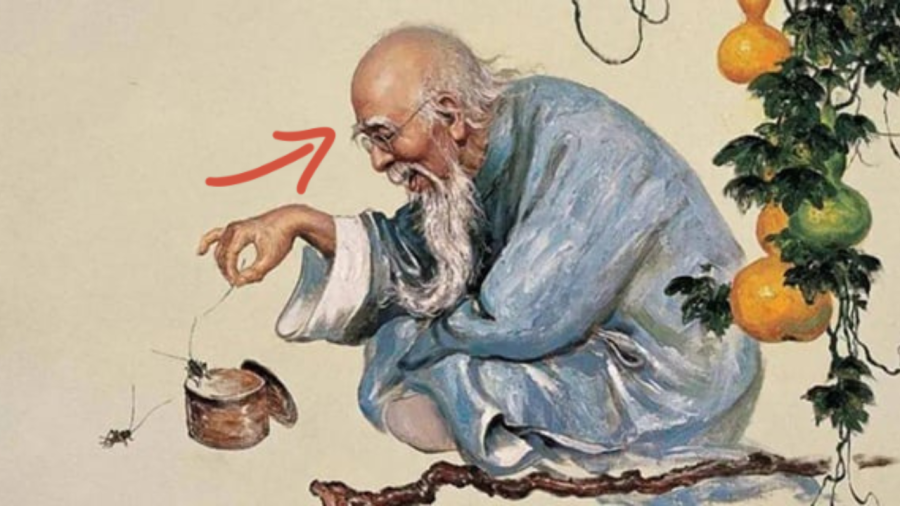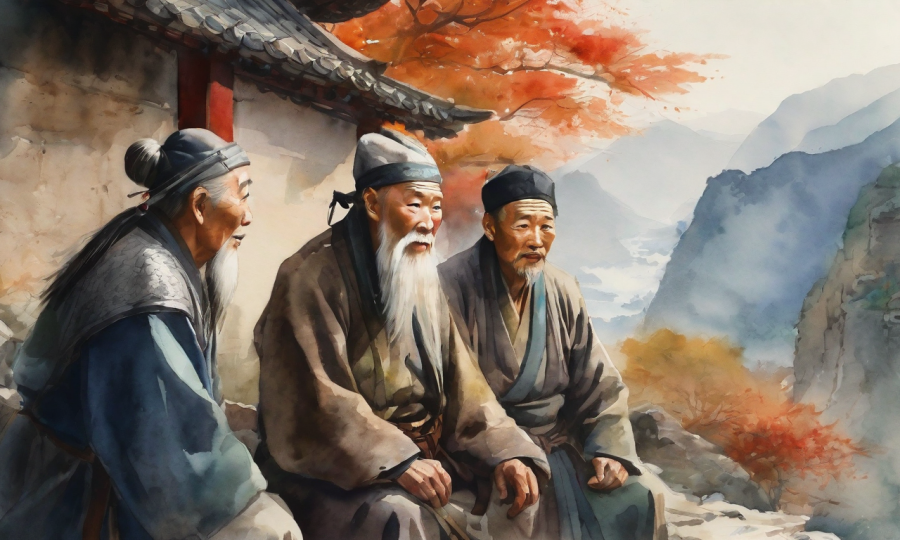In ancient times, our ancestors lived in very poor conditions, simple diseases were considered serious and difficult to cure. Not to mention the shortage of food, the limited living conditions which led to the relatively low life expectancy of our ancestors. Therefore, the biggest wish of our ancestors was to live long and healthy.
For that reason, our ancestors drew many experiences in observing people. Some people could tell the lifespan of others just by looking at them.
Among them, the saying “If the eyebrows grow long at 30, death will come at 40; if they grow at 50, it’s a sign of longevity”. This is the teaching of the ancients to predict people’s fate, old age, illness, and death.

So what does this saying mean and is it true? Is there any scientific basis to explain this belief?
To explain simply, “If the eyebrows grow long at 30, death will come at 40” means that if the eyebrows start to grow at the age of 30, it is a bad omen. This indicates that most of these people will not live beyond 40. Such people are also called short-lived by the ancients.
It can be said that the age of 30 is the time when the ancients believed a person reached their peak. At this time, the body is full of energy and vitality.
During this period, if the eyebrows grow long, it indicates that this person has started to show signs of aging. This is completely contrary to the physical condition of someone in their thirties. Therefore, it is considered a sign of short lifespan.
If a person in their thirties suddenly grows long eyebrows, it means they have started to age. Therefore, the ancients defined the early growth of eyebrows as an abnormal phenomenon, not in accordance with the development and growth of eyebrows.
“If the eyebrows grow at 50, it’s a sign of longevity” because in ancient society, the ancients believed that 50 years old was the period when they clearly knew their fate. The average lifespan of the ancient people was relatively low, so 50 years old was already considered old.
Therefore, if the eyebrows grow long during this period, it is considered a normal phenomenon, following the natural growth and elongation of the eyebrows.
Therefore, “If the eyebrows grow at 50, it’s a sign of longevity” actually means that the person has entered a long life. This shows that their body is following the natural laws, so they have a higher chance of living longer than others.
The theory of physiognomy
In fact, a theory of physiognomy has been circulated in ancient Chinese society, mainly predicting a person’s fate through their appearance. The main focus is on facial features such as eyes, nose, mouth, ears, eyebrows…
According to physiognomy, eyebrows are a symbol of longevity. Those who live long are often associated with the image of long white eyebrows. Therefore, the ancients had the habit of using long eyebrows as a symbol of longevity.
According to the theory of physiognomy, the direction, shape, and length of the eyebrows are important criteria for evaluating a person’s longevity.

What does science say about this belief?
Although science has not been able to explain this saying, most people, especially middle-aged and older people, still believe in this teaching.
Firstly, in reality, the growth of eyebrows is a natural phenomenon of the human body. From the perspective of science, the saying is not entirely convincing. It is an oral experience, not a truth derived from clear research.
Secondly, this is a general understanding of natural phenomena, without specific evidence, only based on common observations. Moreover, there are still many exceptional cases, when people in their thirties with long eyebrows can still live long and vice versa.
However, if young people encounter cases of abnormal eyebrow growth, they may have problems such as endocrine disorders. In this case, you should observe and seek timely medical examination to detect and treat any health issues.
In addition, long-lived people often have the following facial features:
Full forehead
People with a full forehead not only have more talent and intelligence than others but also easily resolve emotions. Therefore, they often encounter more luck in their career and life.
A wide, full forehead is also a sign of longevity. On the contrary, a low, narrow forehead and low hairline are often signs of narrow-mindedness, selfishness, and short lifespan.
Long nose
The length of the nose is also related to longevity. People with a deep nasal bridge and long nose usually live longer. On the other hand, people with a short nose are prone to irritability, bad mood, and lack of clarity of mind. This also affects longevity to some extent.
According to the Five-Element theory, a person with a long nose that connects to the Halls of the Five Tones will enjoy a long and prosperous life, with great longevity. Moreover, those with this nose feature will have a smooth and successful life, with great blessings.
Large and thick ears
Traditional medicine believes that the ears are closely related to the kidneys, and the health of the kidneys directly affects longevity. People with large and thick ears like to socialize and have many social relationships.
People with large and thick ears will encounter a lot of luck in life, and their business and entrepreneurship will be smooth. When facing difficulties, they often receive help from others. Women with this ear feature bring good luck to their husbands.


































